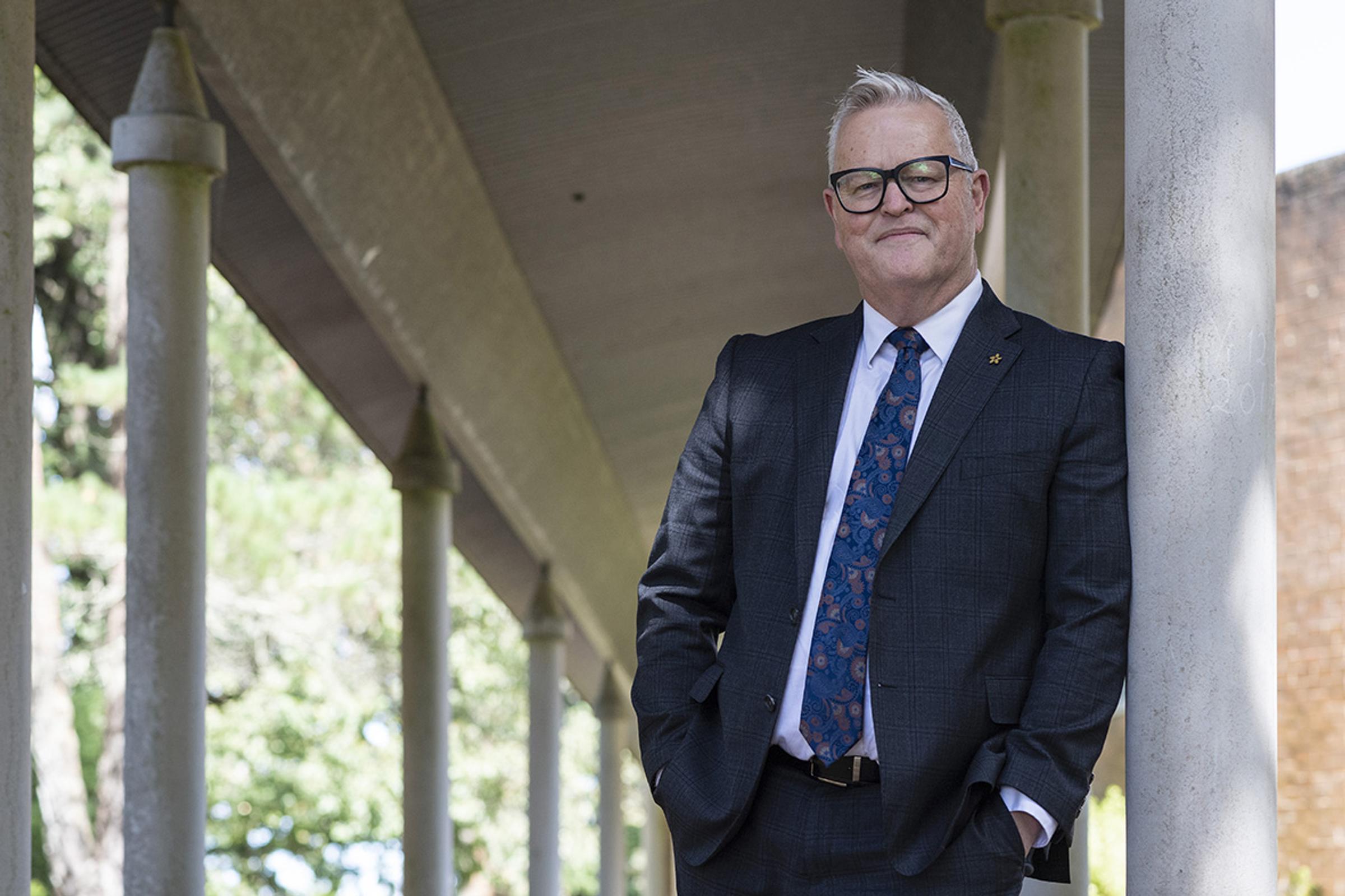From the Principal

To the Blue Mountains Grammar School Community,
In recent newsletters, we have begun to dig deeper into the issues shaping not just education but also our young people. There has been a significant shift in schools, young people and the future, particularly since 2010. As an educator and a parent, I am deeply invested in understanding and addressing these issues. I am always interested in reading books that shine some light on developing trends for our young people and how that might impact how they approach school and learning.
I have recently finished reading "The Anxious Generation" by Jonathan Haidt. While the title may sound dystopian, it provides excellent insight into a growing trend and equally growing concern from adults and parents regarding how our young people interact with technology, mainly social media. I highly recommend this book for anyone with children, particularly those younger than 16. In particular, I cannot recommend it highly enough to those with children who are early and pre-teen. The data sets, and insights may inform your decision to buy your child a smartphone and allow them to access social media. This book not only presents a thorough analysis of the digital challenges facing our youth but also serves as a poignant reminder of our critical role in guiding and shaping the next generation. By understanding these challenges, we can empower our children to navigate the digital world more safely and responsibly.
In "The Anxious Generation," Haidt identifies four major risks associated with a technology-based childhood. These include reduced face-to-face interactions, shortened attention spans due to constant digital distractions, exposure to inappropriate content, and an increase in cyberbullying and social pressure. Each of these points has deeply resonated with me, challenging me to rethink how we, as a community, approach education and parenting in the digital age. I want us, as a community, to consider these insights together and see how we can work together to address these issues for our children.
In the book, Haidt also discusses the impact of modern technologies on young people and children, outlining four foundational harms that can significantly affect their development and well-being. These are social deprivation, sleep deprivation, attention fragmentation, and addiction. Let me give you a summary of each of these:
Social Deprivation
Haidt identifies that the digital age has transformed how young people interact and build relationships. While technology enables connectivity, it often replaces meaningful face-to-face interactions with superficial online communications. This shift can lead to social deprivation, where young people miss critical social cues and the deep, empathetic connections essential for emotional development. The lack of real-world interactions can hinder their ability to develop strong interpersonal skills and can increase feelings of loneliness and isolation.
Sleep Deprivation
Many young people use their phones or other digital devices in their bedrooms late into the night. The light emitted from screens can interfere with the natural sleep cycle, leading to sleep deprivation. Adequate sleep is crucial during the developmental years, affecting everything from cognitive function to mental health. Chronic sleep deprivation can lead to a host of issues, including poor academic performance, increased anxiety, depression, and physical health problems.
Attention Fragmentation
Constant notifications and the ability to switch between apps and websites quickly can fragment a young person's attention. This environment promotes a habit of continuous partial attention, where the focus is shallow and sustained concentration is disrupted. This fragmentation can adversely affect the ability to perform tasks that require deep focus and diminish the capacity for deep learning and complex thought processes.
Addiction
Digital devices and social media platforms are designed to be highly engaging and sometimes addictive. Features like infinite scrolling and constant notifications can make it difficult for young people to disengage. This can lead to an unhealthy attachment to devices, where usage is compulsive and not necessarily driven by a specific need or benefit. Digital addiction can displace essential activities like physical exercise, face-to-face interactions, and downtime, all of which are crucial for healthy development.
This book has challenged me personally and reinforced the importance of our partnership with you, our parent community. Your involvement is essential as we implement new strategies and expand our educational horizons. Please engage with us, share your insights, and help shape our approach to these challenges. We have a lot to consider, including how much technology in school is too much. We must ask if we are contributing to and perhaps the issues identified.
While the issues presented in "The Anxious Generation" might appear daunting, they are certainly not insurmountable. Together, we can steer our children toward healthier, more balanced lives with informed strategies and collaborative efforts. We look forward to working together to harness the full potential of our educational resources and environment. Haidt identifies connection with the natural world as a healing tonic for the things demanded by social media. In our unique World Heritage-Listed location, we are beautifully equipped to imagine what might be for our children.
Thank you for your continued support and commitment to our shared mission of nurturing resilient, well-rounded individuals.
Warm regards,
Steven Coote
Principal